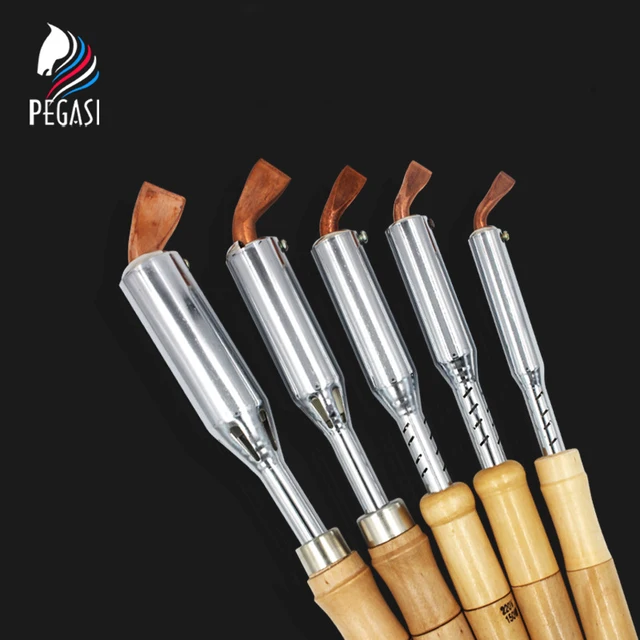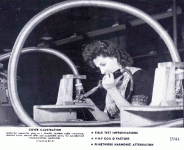I use an ancient but very good Philips 40 watt iron (soldering station) with a large wedge/chisel tip for heavy stuff.
If its occasional use you want for really heat sapping components then I also find a small gas iron to be excellent. On very rare occasions I've actually used both to really deliver significant heat to large metalwork items.
Again, my gas iron is old (Portasol) and these look like the latest version.
https://cpc.farnell.com/portasol/po...dkey=https:en-CPC/CPC_United_Kingdom/w/search
https://cpc.farnell.com/portasol/po...dkey=https:en-CPC/CPC_United_Kingdom/w/search
If its occasional use you want for really heat sapping components then I also find a small gas iron to be excellent. On very rare occasions I've actually used both to really deliver significant heat to large metalwork items.
Again, my gas iron is old (Portasol) and these look like the latest version.
https://cpc.farnell.com/portasol/po...dkey=https:en-CPC/CPC_United_Kingdom/w/search
https://cpc.farnell.com/portasol/po...dkey=https:en-CPC/CPC_United_Kingdom/w/search
In the first instance I am trying to solder to the back of these. Maybe eyelets would be easier!
https://rover.ebay.com/rover/0/0/0?mpre=https://www.ebay.co.uk/ulk/itm/263840595270
https://rover.ebay.com/rover/0/0/0?mpre=https://www.ebay.co.uk/ulk/itm/263840595270
I commercially make guitar amps, their cabinets and the speakers themselves, so I am all day long soldering speakers into them.
Think not only on soldering iron power but also on tip mass; even if hot enough to melt solder, the tip and any molten solder on it will cool down when touching a relatively thick wire , think 1 to 1.5mm^2 section, and speaker terminal, and you can´t leave iron tip there for a long time until it´s hot enough.
Tip mass is roughly related to iron power, so:
*18W iron: not enough. Typically around 3 mm tip; some designed for fine PCB work might even have a thinner tip: useless here
* 40W: typically 5mm diameter tip: now we are talking, useful for general purpose work including "normal" speaker wiring.
As suggested above , a chisel or "pyramid" tip, both offer flat sides, transmit heat better than a long round "needle" tip.
* 60W : they generally come only with around 6mm diameter chisel or pyramid tip, way too powerful for fine PCB work, too large to solder, say, DIP package Op Amps and such, *perfect* for speaker wiring, power transformer wires, tube amp work, filament wiring, etc. or soldering to potentiometer case, chassis main grounding terminal, etc. , so I suggest you add one of these to your arsenal.
Just buy one of the cheap generic Chinese ones, no need for an expensive soldering station for that use, (you´ll use them full power anyway) .
Just plug them in, use when needed, and unplug after; the hot tips tend to oxidize and burn solder on them if left unused for a long time (more than 15 minutes unused).
You want:



absolute worst case, get one of these (which are quite inexpensive), the smallest one is 75W, you might find a 60W one ; plain unprotected copper tips erode relatively quick, after a few hours constant use, but since you´ll use them for minutes each time, in practice will last years.
Just remember to unplug them, and while cooling wipe them with a wet rag and retin on remaining heat, so they "go to sleep" with a shiny fresh coat of solder.

Think not only on soldering iron power but also on tip mass; even if hot enough to melt solder, the tip and any molten solder on it will cool down when touching a relatively thick wire , think 1 to 1.5mm^2 section, and speaker terminal, and you can´t leave iron tip there for a long time until it´s hot enough.
Tip mass is roughly related to iron power, so:
*18W iron: not enough. Typically around 3 mm tip; some designed for fine PCB work might even have a thinner tip: useless here
* 40W: typically 5mm diameter tip: now we are talking, useful for general purpose work including "normal" speaker wiring.
As suggested above , a chisel or "pyramid" tip, both offer flat sides, transmit heat better than a long round "needle" tip.
* 60W : they generally come only with around 6mm diameter chisel or pyramid tip, way too powerful for fine PCB work, too large to solder, say, DIP package Op Amps and such, *perfect* for speaker wiring, power transformer wires, tube amp work, filament wiring, etc. or soldering to potentiometer case, chassis main grounding terminal, etc. , so I suggest you add one of these to your arsenal.
Just buy one of the cheap generic Chinese ones, no need for an expensive soldering station for that use, (you´ll use them full power anyway) .
Just plug them in, use when needed, and unplug after; the hot tips tend to oxidize and burn solder on them if left unused for a long time (more than 15 minutes unused).
You want:


An externally hosted image should be here but it was not working when we last tested it.

absolute worst case, get one of these (which are quite inexpensive), the smallest one is 75W, you might find a 60W one ; plain unprotected copper tips erode relatively quick, after a few hours constant use, but since you´ll use them for minutes each time, in practice will last years.
Just remember to unplug them, and while cooling wipe them with a wet rag and retin on remaining heat, so they "go to sleep" with a shiny fresh coat of solder.

I've soldered onto ones exactly like that with a 25W iron in the past right at the end where it's thinnest, just, I wouldn't recommend it, most come with an eyelet.In the first instance I am trying to solder to the back of these. Maybe eyelets would be easier!
https://rover.ebay.com/rover/0/0/0?mpre=https://www.ebay.co.uk/ulk/itm/263840595270
I have in thr past bought cheapo 60w irons for making brass slot car chassis but have found exactly what you comment on JMFahey......the tip burns away. I try to turn off when not using and also have a tin of tinning compound but alas they done last long.
I may try an Antex 60w aswell as the gas solution.
Thanks for all your help
I may try an Antex 60w aswell as the gas solution.
Thanks for all your help
I use these. Much easier...
https://www.ebay.ca/itm/40-Wire-Rin...h=item3afcaea110:g:lV8AAOSw2LZaTt-G:rk:7:pf:0
https://www.ebay.ca/itm/40-Wire-Rin...h=item3afcaea110:g:lV8AAOSw2LZaTt-G:rk:7:pf:0
ruairi, getting a used Metcal really upped my soldering abilities also. Now instead of soldering being a chore I look forward to it. Plus you have so much better control with the slim hand piece compared to a fire stick. It's like holding a BIC fine tipped marker.
BillWojo
BillWojo
That's how I do it (fixing old car radiators. . .) I have one of those but its not that useful for most things.
1) What gauge is the wire you are soldering to the post? If the wire is 12 AWG or smaller a modest iron should be adequate. You should not need one of those 100W + monsters. A Metcal can be great but you need an appropriate tip as well. (I get them used on eBay.)
2) you could crimp a terminal (ring or spade) to the wire and clamp it to the terminal with a nut and lockwasher. More reliable and easier to fix when someone breaks the connector. Done right only an obsessive audiophile would complain. A good crimp tool is cheaper than a big iron usually.
I have searched but can't find a simple answer.
I have an Antex 18w iron for soldering smaller parts and connections on pcbs but it isnt powerful enough to solder onto speaker terminals.
What kind of wattage should I get?
As others have suggested, it's as much a question of the bit as the iron - although 18W is a bit low anyway.
I've always been an Antex fan, and use a 50W temperature controlled Antex iron at home - I think it's a TC50? (but I've had it so long the writing has rubbed off). At work I use an Antex soldering station, again 50W, and basically very similar to my TC50 - but split in two parts.
They use the same bits, and you can get a nice thick one - about the same thickness at the end as the barrel is, and this is excellent for heavier work.
For occasional speaker terminals it would be worth trying the thick bit on your 18W, you'll probably find it will do the job OK, but you might have to wait a few seconds for it to warm back up before doing the second terminal.
I remember a LONG time ago (early 70's), repairing a bass amp and speaker for a friend, and the flexible wire to the coil had come off - it just needed soldering back on, but the magnet was so huge I had a real struggle as the soldering iron kept flying across to the magnet
- Status
- This old topic is closed. If you want to reopen this topic, contact a moderator using the "Report Post" button.
- Home
- Design & Build
- Equipment & Tools
- What wattage soldering iron for speaker wire/terminals
